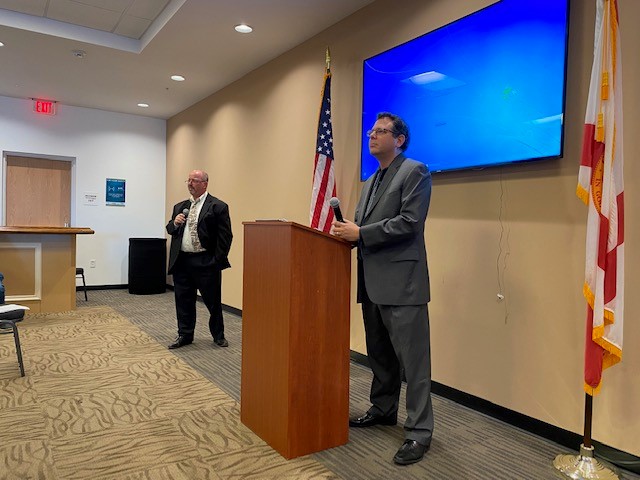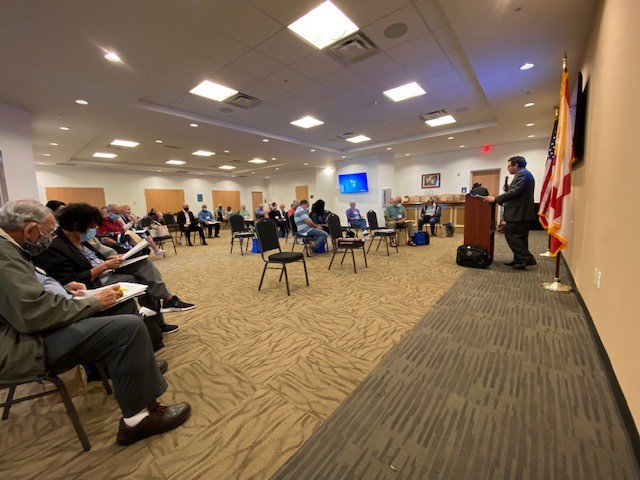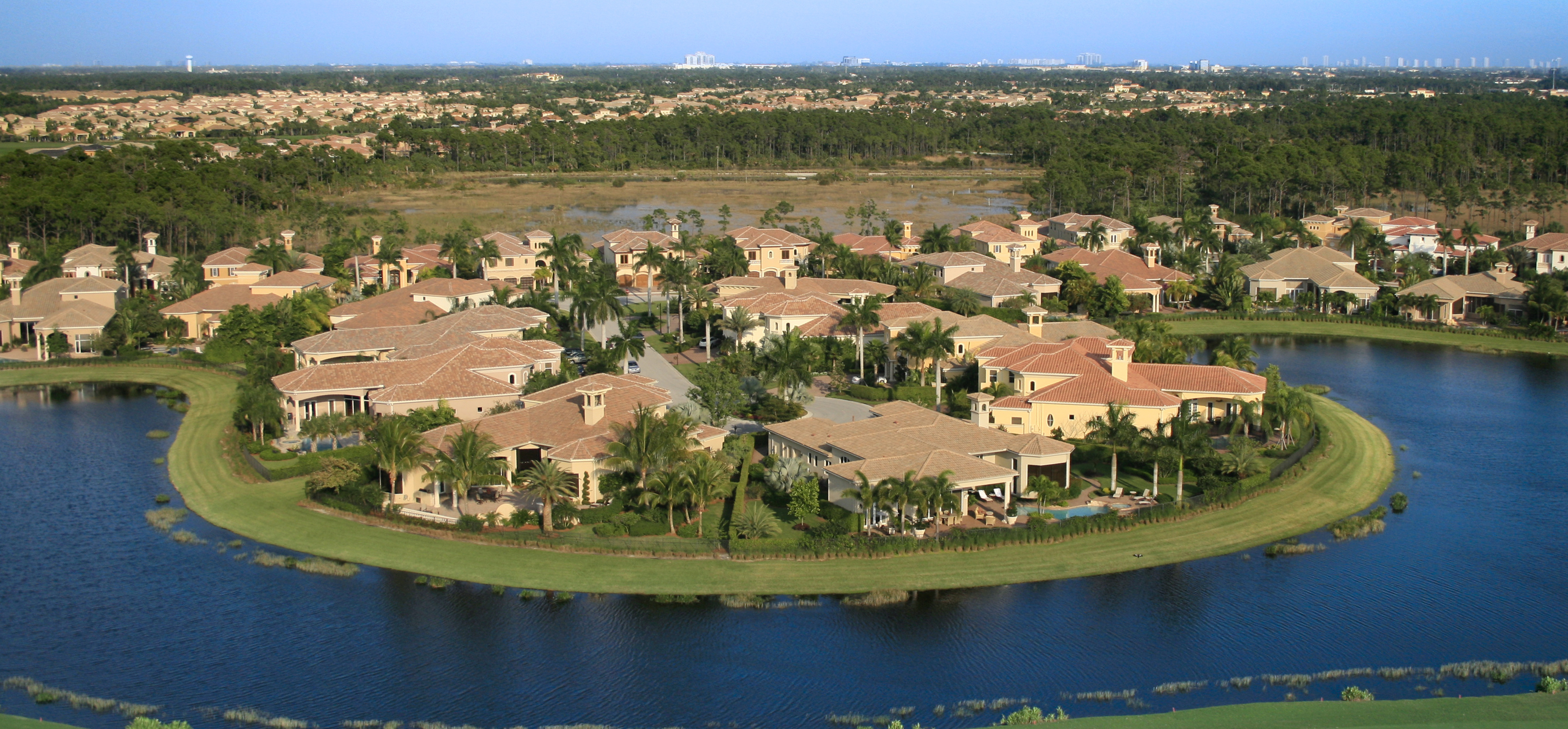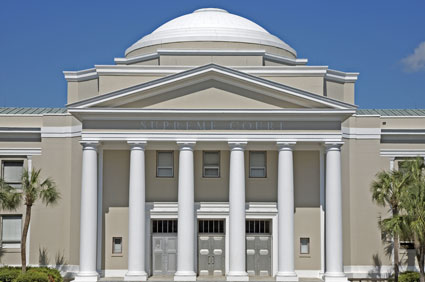On Monday, May 3rd, Governor DeSantis issued Executive Orders 21-101 & 21-102 immediately suspending and, as of July 1st, invalidating all local remaining COVID-related emergency orders, statewide. Importantly, the Governor did not cancel or end the State of Emergency, which as of this writing is scheduled to continue through June 26, 2021. However, the latest order extending the State of Emergency provides that Florida should prepare to resume non-emergency operations as of June 27th. As a result, we are seeing a split in reaction to these latest events. On the one hand, some communities are eager to fully reopen and return to pre-COVID operations. On the other hand, some communities are concerned that they should maintain restrictions on the use of common elements, areas, and amenities, as the COVID pandemic has not ended. With this column, we aim to provide some general guidance in how to address each side’s concerns. For those communities comfortable with reopening, we recommend a measured approach, taking into consideration the CDCs’ ongoing guidelines and protocols. Recently enacted Section 768.38, Florida Statutes, provides corporate immunity against COVID-related claims where there has been a good faith effort to substantially comply with government-issued health standards or guidance. Although the County’s COVID orders were suspended, the CDC’s COVID guidelines and protocols remain in effect. As such, we believe the reopening of amenities and/or lifting of other COVID-related restrictions should, as appropriate and practical, still take into consideration the CDC’s guidelines in order to help minimize potential COVID-related claims. For example, for amenities that are reopened, we recommend reducing seating and capacity limits; maintaining distance between tables; and limiting group sizes. For those communities that believe it is necessary to keep amenities closed or with limited hours of operation, we believe both homeowners and condominium associations may continue to do so, as the statutory emergency powers remain in effect, and, we believe, will continue for a reasonable time following the end of the State of Emergency. If a...
A Boca Raton Law Firm | HOA Attorneys, Business Litigation,
and Real Estate Transactions
Commercial Litigation & Appeals
Representing governmental entities, individuals, for-profit and not-for-profit corporations, our litigation attorneys have extensive civil litigation and trial experience in both state and federal courts.
Community Association Law
Representing condominium associations, homeowners associations, country clubs, cooperatives, developers, financial institutions and individuals in the creation of and governance of these organizations.
Estate Planning, Trust & Probate Administration
The Estate Planning, Trust & Probate Administration Practice Group offers personal tax planning and advice to assist clients with the preservation of wealth and transfers to succeeding generations.
Real Estate, Corporate &
Land Use
Representing buyers, sellers, investors, developers, lenders, architects, engineers, contractors, landlords and tenants in commercial, industrial and residential real estate and financing transactions.
Boca Raton, Florida - The Palm Beach County Sports Commission has appointed Larry Schner as member of the Board of Directors. The Palm Beach County Sports Commission is a private, not-for-profit organization contracted by Palm Beach County to promote and market the County as a sports and sports tourism destination. The Commission brings sporting events and activities to the County, enhances economic impact, stimulates bed tax revenues (with a focus on the off-season), and maximizes utilization of County facilities. Larry is currently a partner at Sachs Sax Caplan, P.L. in Boca Raton, Florida. Larry joined Sachs Sax Caplan on December 1, 2016 after maintaining his own practice of Larry E. Schner, P.A. for twenty-five years in Boca Raton. Mr. Schner practices in the area of Community Associations Law, representing condominium and homeowners throughout Broward and Palm Beach County. He has extensive experience in this area and has represented hundreds of associations since his admission into the Florida Bar in 1985. Sachs Sax Caplan is a full-service Florida law firm. Practice areas include Community Association Law, Estate Planning & Probate Litigation, Commercial Litigation & Appeals, Real Estate, Corporate & Land Use, and Governmental Law & Lobbying. Larry is very eager to serve on the board of directors for the commission. He is excited to assist in planning and organizing events in the county for professional and amateur athletes. He hopes it will help improve and support the commissions goal of increasing tourism especially now that there is a better handle on the pandemic. Larry has always had an affinity for sports. He played college basketball at Northwestern University. Decades ago, he helped put together the first exhibition game with the Miami Heat and the Seattle Supersonics that took place at FAU. Previously, he has been President of the Blue and White Club at Lynn University as well as the Owl Club at FAU. The love of sports has been passed down...
April 5, 2021 marks the beginning of open COVID-19 vaccine eligibility for all adults in Florida, and, based upon the state’s progress battling the pandemic, courts are beginning to resume jury trials and in-person hearings after having suspended both for most of the past year. While Florida’s foreclosure moratorium expired months ago, the President recently extended the foreclosure moratorium for federally guaranteed mortgages through June 30, 2021. As the result of this extension, the majority of Florida mortgage foreclosure lawsuits will not proceed to conclusion for the next few months. However, in this writer’s opinion, the moratorium affecting federally guaranteed mortgages is not likely to last in the United States beyond the summer. Once all mortgage foreclosures may be resumed, courts, homeowners’ associations, and condominium associations will generally be interested in having the backlog of cases diligently prosecuted to conclusion. As many associations learned during the recession that hit the housing market twelve years ago, it is often wasteful to pursue assessment collection activities against delinquent owners who are already involved in mortgage foreclosure cases and who will imminently be foreclosed by their lenders. However, mortgage holders frequently take a deliberately slow approach to foreclosing, often to the chagrin of associations who bear witness to mounting assessment delinquencies as cases plod forward without urgency. Therefore, associations are encouraged to file responsive pleadings in mortgage foreclosure lawsuits and to participate in cases as may be prudent to hasten their conclusion. First mortgage holders suing to foreclose mortgages will join associations whose covenants impact the property being foreclosed, as defendants. As a defendant to a mortgage foreclosure lawsuit, an association has the right and ability to participate in the case, to attempt to expediate its conclusion by taking actions including, but not limited to, setting motions for hearing, seeking defaults against parties who have not responded to the case, setting cases for trial after all parties have responded or been defaulted, objecting to extension requests, asking the judge for case management hearings, and requesting the setting or re-setting of foreclosure sales. These are just some...
April is #NationalFairHousingMonth! This year, we celebrate the 53rd anniversary of the Fair Housing Act. This landmark law was signed into law on April 11, 1968, by President Lyndon B. Johnson. The Fair Housing Act prohibits housing discrimination because of race, color, religion, national origin, sex, disability, and family status. The Act furthers the beliefs advocated by Dr. Martin Luther King Jr. and the other heroes of the Civil Rights Movement. “Fair Housing Month is a time to recommit to our nation’s obligation to ensure that everyone has equal access to safe, affordable housing,” said HUD Secretary Marcia L. Fudge. “Unfortunately, housing discrimination still exists, from individuals and families being denied a place to call home because of the color of their skin or where they come from, to landlords refusing to allow persons with disabilities to keep assistance animals, to individuals being denied a place to live because of who they love. In this moment of unprecedented crisis, fair housing is more important than ever. 53 years after the Fair Housing Act was signed, our journey to justice in housing continues.”For more information on Fair Housing from HUD, click here.
As many of you may know, the 2021 Florida legislative session recently began, and already several bills have been filed that relate to community associations. None, however, may be more important than House Bill 7, and its corresponding Senate Bill 72, which would act to protect associations from liability due to Covid-related claims. Under the law, a Covid-related claim would include any civil liability claim which arises from or is related to Covid-19, and includes any claim for damages, injury or death. Further, the legislation is applicable to all not-for-profit corporations, which would include all community associations and many country clubs. Under the pending legislation, a plaintiff is required to plead their claim with particularity. Further, the plaintiff would be required to submit an affidavit, signed by a physician licensed in the State, which attests to the physician’s belief, within a reasonable degree of medical certainty, that the plaintiff’s Covid-related damages, injury or death occurred as a result of the defendant’s actions or omissions. Presuming the plaintiff was able to do so, the court then would be required to determine, as a matter of law, whether the defendant made a good faith effort to substantially comply with the controlling governmental issued health standards or guidelines that were available at the time the cause of action arose. Admissible evidence would be limited to demonstrating whether or not the defendant made such a good faith effort. If the court determined that the defendant made such a good faith effort, the defendant would be completely immune from civil liability. Further, if more than one set of standards or guidance was controlling or available at the time the cause of action arose, the defendant’s good faith effort to substantially comply with any one of such standards or guidelines would provide complete immunity from civil liability. In addition, even if the court determined that the defendant did not make such a good faith effort, the proposed...
BOCA RATON, Fla. (March 16, 2021) – Boca Raton-based law firm Sachs Sax Caplan has announced the elevation of three of their attorneys, Michael Chapnick, Joel Kenwood and Angela Prudenti from the position of Senior Counsel to Principal. Michael Chapnick is Florida Bar Board Certified in Condominium and Planned Unit Development Law. He represents community associations, advising on all aspects of cluster housing operation, including day-to-day operational issues, collection and lien foreclosures, turnover of control and election issues. Chapnick graduated from the University of Maryland at College Park where he earned a Bachelor of Arts in Government and Politics. He attended the Detroit College of Law where he earned his Juris Doctor, cum laude. He teaches continuing education courses to Florida Community Association Managers, conducts board member certification courses, and speaks on various topics including construction defects, real estate and condominium disputes, white collar criminal law, covenant enforcement, and occupancy screening issues. Joel Kenwood is Board Certified by the Florida Bar in Civil Trial Law and Business Litigation Law. He is also Certified as a Circuit Court Civil Mediator by the Florida Supreme Court. His practice includes business related litigation involving real estate, construction defects, corporate disputes and general commercial litigation law. He also handles matters involving personal injury. He is a past President of the South Palm Beach County Bar Association. He received his undergraduate degree from Stanford University in Stanford, California. He attended the Fletcher School of Law and Diplomacy at Tufts University and received his Juris Doctor from The American University College of Law in Washington, D.C. Angela Prudenti concentrates her practice in commercial litigation. Prior to joining Sachs Sax Caplan, Prudenti was Chief of the White Collar Crime Unit at the Palm Beach County State Attorney’s Office in West Palm Beach. She also previously held the position of senior trial attorney in the Homicide/Crimes against Children Unit at the State Attorney’s Office. She received her Bachelor of Arts at The American University in Washington, D.C., and her Juris Doctor from Temple University. ...


Sachs Sax Caplan participated in the PM-Expo at the South Florida Fairgrounds on March 10, 2021. This was one of the first in-person trade shows since the Covid-19 pandemic took over the globe. It was great to get out and see our property managers, community association boards and homeowners association boards. Attorneys Steven Rappaport and Michael Chapnick led a Condo/HOA Board Certification class to discuss relevant governing documents and amendments, elections, reserves, official records and how associations should operate during Covid-19. Those in attendance received a certificate of completion. Later in the day, Attorney Steven Rappaport delivered a Legal Update on new and updated legislation and its effects. Being in-person (safely) has its perks, and we were glad we could connect with current and potential clients at the expo. Looking forward to the next events whether they are virtual or in-person.
BOCA RATON, Florida – On March 3rd more than 500 South Palm Beach County residents and workers received Covid-19 vaccines at an interfaith initiative hosted on the Temple Beth El campus in Boca Raton. Nearly 20 religious organizations, the Palm Beach County Sheriff’s Office, Boca Raton Police Department and local teachers participated. Daniel Kaskel, a partner with the law firm of Sachs Sax Caplan, and Vice President of the Boca Raton Synagogue, began working on this event in mid-January, 2021. “In January, vaccines were very scarce, particularly in Palm Beach County,” advises Kaskel. “I reached out to nearly every elected official and state and local government agency to create a POD, a point of distribution, to help the seniors in my synagogue obtain vaccines.” In early February, Mr. Kaskel heard back from the Florida Division of Emergency Management, the agency tasked with creating PODs. He was advised that the DEM was inundated with such requests and could not accommodate each one. Kaskel then asked if the DEM would elevate the request if he presented an interfaith initiate comprised of a synagogue, church and mosque. The answer was an encouraging YES. In the few weeks that passed, a significant number of the senior population of Boca Raton Synagogue had fortunately received vaccines, so Kaskel turned to Temple Beth El. “Within a day I received a call from Rita Diamond, Temple Beth El’s Director of Operations. They were very excited about the opportunity to not only provide vaccinations their seniors, but to invite other houses of worship to join,” recounts Kaskel. Rabbi Greg Weisman of Beth El invited the Islamic Center of Boca Raton and Ebenezer Missionary Baptist Church to partner in the event. Kaskel presented a proposal to the DEM in mid-February, and the event was quickly approved, with a March 3rd date and an anticipated 500 doses. Among the DEM’s requirements was that vaccines could only be administered to individuals who qualify under state guidelines, no walk-ins were permitted, and the...
As a result of the COVID-19 pandemic, the State of Florida-through Governor Ron DeSantis imposed a statewide foreclosure moratorium last year. On the federal level, last month the Acting United States Department of Housing and Urban Development ("HUD") Secretary announced an extension of foreclosure moratoriums on federally-backed single family mortgages through March 31, 2021. Despite these moratoriums, Florida has one of the highest foreclosure rates in the country. According to ATTOM Data Solutions, one in every 7,338 housing units in August 2020 had a foreclosure filing compared to one in every 13,791 housing units in the United States. While many foreclosures are brought by lenders seeking to foreclose on mortgages, lien foreclosure lawsuits continue to be filed by condominium and homeowners' associations due to property owners' nonpayment of assessments. Under the Condominium Act, a foreclosure lawsuit must be filed within one year of the filing of the association's lien whereas the statute of limitations for homeowners' association foreclosures is five years. When a mortgage lender is not foreclosing, many of our association clients will proceed with a lien foreclosure lawsuit against an owner's property for non-payment of assessments even if the property may be underwater. A final judgment of foreclosure will state the amounts due to the association, and, if the owner fails to timely pay the total sum owed to the association, a foreclosure sale will take place. Where the proceeds from the sale are insufficient to satisfy the association's judgment, there will be a deficiency. In 1996, Florida's Fourth District Court of Appeal, in Maya Marca Condominium Apart. Inc. v. 0 'Rourke, established that associations may obtain deficiency judgments against foreclosed owners in situations where acquiring an underwater property through foreclosure does not make the association whole. Upon acquiring an underwater property, an association should determine whether to pursue a deficiency judgment against the owner personally, which decision hinges upon whether or not the owner is or is likely in the future to be collectible. Associations should keep in mind that...
As many of you likely already know, the federal government, though the United States Department of Housing and Urban Development ("HUD") and the CARES Act issued moratoriums of mortgage foreclosures and evictions for non-payment of rent. On December 17, 2020, HUD issued its Mortgagee Letter 2020-43, which extended the foreclosure and eviction moratorium as a result of COVID-19. With this latest order the moratorium on residential foreclosures and evictions is extended until February 28, 2021. There are, however, a couple of important caveats to this order. First, it is important to keep in mind that the moratorium does not prevent a condominium or homeowners association from seeking foreclosure for unpaid assessments. Accordingly, we have advised many of our clients to continue aggressively pursuing the collections of its assessments. In situations that associations may be hesitant to proceed with the filing of foreclosure because there is a bank foreclosure pending or imminent, we would recommend that the associations strongly consider proceeding with its own foreclosure action. The reason being, the longer the banks are delayed from proceeding, the more likely the chance that the association will be able to finish its own foreclosure action resulting in a foreclosure sale. Second, the moratorium excludes vacant or abandoned properties. In other words, if the residents of the property have already vacated the subject property, the moratorium does not apply, and foreclosure and/or eviction may proceed in the ordinary course. This is important to keep in mind, because often the banks holding the mortgages do not have any idea on the status of the occupancy of the unit, and as a result will assume the property is occupied. This assumption will usually cause the banks to treat all properties as being affected by the moratorium summarily delaying the proceedings. Through close consultation with the associations where many of these properties exist, our office has been successful in opposing the bank's motions to cease proceedings by informing the courts that the moratorium is inapplicable to vacant properties. Such...
It’s been about a year since the world first learned of COVID-19. Since then, there have been more than 17 million cases and more than 300,000 deaths from the disease in the United States alone. To put it mildly, the pandemic’s effects have been far-reaching. Approximately 12.6 million people have become unemployed, hospitals have been overrun, resources have been tapped, supply-chains have been taxed, and children and adults have been forced to adjust to learning and working remotely. Who would have ever thought that we could or would see such things in our lifetimes? However, and at long last, we’ve finally received some good news. Where it normally takes five years or more to develop, test, and approve a vaccine for use, we have seen an unprecedented collaboration between the public and private sectors, and Operation “Warp Speed” has resulted in not just one, but four potential vaccines being approved for emergency use in the space of less than one year. Once vaccines have been approved for such use, the challenge becomes one of distributing the approved vaccines and making sure that the most vulnerable among us are the earliest to be vaccinated. In connection with vaccine distribution, one method that has been used previously involves the “Closed Point of Dispensing (“POD”) Program.” Pursuant to this program, the federal government employs a system for the disbursement of lifesaving medications, from the Strategic National Stockpile to each state’s department of health (DOH). In turn, each DOH is required to dispense these medications to its entire population. To assist in this effort, the DOHs partner with local communities to form PODs so that communities can dispense medications to their residents. An association that has established itself as a Closed POD will have a direct relationship with the county health department to receive, store, and administer COVID-19 vaccines to all its residents once such vaccines are available. Should such an option become available, a condominium or homeowners’ association would be required enter into an agreement with the county...
By recent order of Governor DeSantis, Florida’s state of emergency due to COVID-19 has been extended to the beginning of November 2020. In part, this means that homeowners’ associations and condominium associations continue to be able to utilize emergency powers pursuant to Fla. Stat. §720.316 and Fla. Stat. §718.1265 respectively. Notably, among other emergency powers, is associations’ emergency power to determine that portions of association property are unavailable for entry, use, or occupancy. As such, this emergency power allows associations to keep facilities closed or to reopen them subject to limitations upon use and/or access. Furthermore, despite what state and local governments may be permitting in terms of reopening public facilities and businesses, because of associations’ statutory emergency powers and the continuing state of emergency, there is no requirement that associations reopen association facilities at this time. In addition, those associations that choose to reopen association properties may elect to do so in a way that is more restrictive (but not less restrictive) than what is required by applicable government reopening orders. In terms of current reopening orders, note that Palm Beach County has just entered Phase 2 of reopening after being in Phase 1 since May 11, 2020. Some salient aspects of Phase 2 which are likely to be germane to associations are as follows: CDC social distancing guidelines as well as CDC cleaning and disinfecting guidelines remain in effect.Mandates on wearing facial coverings remain in effect and unchanged by entry into Phase 2.Restaurants and food establishments including clubhouses, banquet halls, and ballrooms may increase indoor service up to 50% seating capacity, bar top meal service may be resumed, and parties of no more than ten people will be permitted provided that separate parties are spaced at least six feet apart from each other.Restaurants and food establishments may be open for dining at all times except between 12:00 a.m. and 5:00 a.m. Take out and delivery services are permitted after dining hours.Spas, acupuncture establishments, massage establishments, gyms, and fitness centers may resume operating at full...
As many of you may know, Palm Beach County has issued Order 2020-012 to mandate the wearing of face masks throughout the County. At this time, based upon our review of the Order, and the information currently available, we advise that any association with an open indoor facility, clubhouse, recreation center or the like, should mandate that all people that enter the building be wearing a mask. It is likely that employees who are limiting their movements to an office with no interactions with any other person may not be required to wear a mask. However, if there is any interaction between people within an association building, all participants are required to wear a mask. For outdoor common areas or common elements, a mask is not required IF social distancing is possible AND followed. The County has placed the burden on the respective establishment, including community associations, to ensure compliance with this order, or face the possibility of fines. There are several exceptions to the mask requirement, including while exercising, for religious reasons, or for medical reasons. We think that some owners may begin to express a medical basis to be exempt from the mask requirement, however, that does not exempt that person from maintaining proper social distancing, which the association should insist upon. Please let us know if you have any questions.
The COVID-19 crisis has caused many of our Clients to raise questions pertaining to their own estate planning, particularly documents that family members may need in the event that a loved one becomes hospitalized. Given this unprecedented time, we encourage all of our clients to consider the following: A. Are your estate planning documents that address legal and medical matters while you are still alive up to date, consistent with your wishes, and readily available or accessible? Estate Planning Documents that are effective immediately that we strongly recommend for Clients: Durable Power of Attorney A Durable Power of Attorney is a written document that appoints an “Agent” to manage your legal and financial affairs, and it gives the Agent legal authority over your assets and other legal rights. The Durable Power of Attorney becomes effective immediately upon signing, and it continues to be valid and effective if you were to become incapacitated. You should only appoint somebody that you completely trust. A Durable Power of Attorney often helps to avoid guardianship proceedings if a person becomes incapacitated, however the power granted by the document would terminate upon death. We recommend that Clients should review their Durable Power of Attorney to insure they are comfortable with the Agent(s) designated as well as the scope of the power given to said Agent(s). Your Agent should also be aware of the document and know where a copy is located. Designation of Healthcare Surrogate Also known as a Healthcare Power of Attorney, a Designation of Healthcare Surrogate nominates an individual (or multiple individuals) to make medical decisions on your behalf. It specifies the types of treatments that the health care surrogate is allowed to consent to, and it names alternate health care surrogates if your first choice is unable or unwilling to serve as your surrogate. A Designation of Healthcare Surrogate is effective immediately, however, when you are awake and have mental capacity, then you maintain complete control of all your own healthcare decisions. We strongly recommend to all our Clients to execute this document and to discuss their respective...

Sachs Sax Caplan, P.L. is proud to be recognized by The Florida Bar for our commitment to hiring and developing Board Certified Attorneys.











